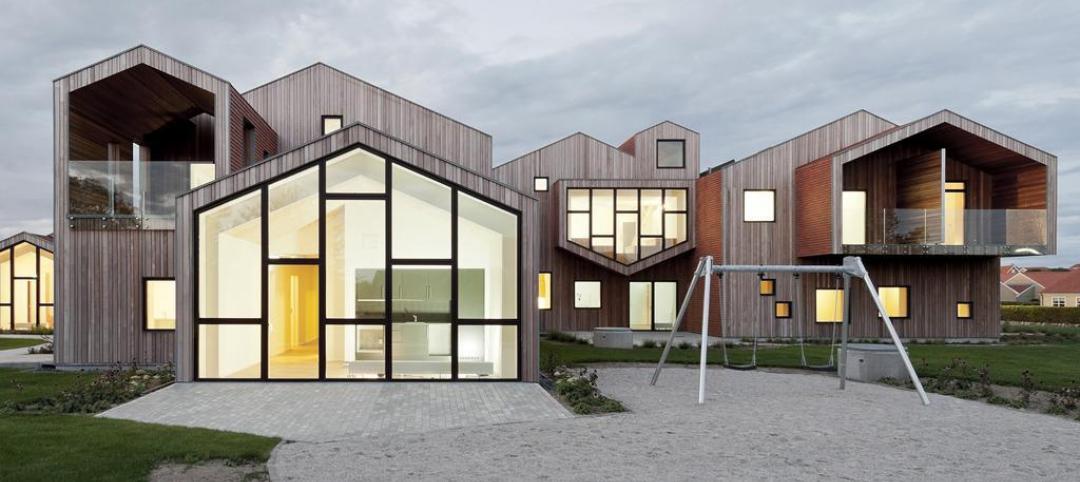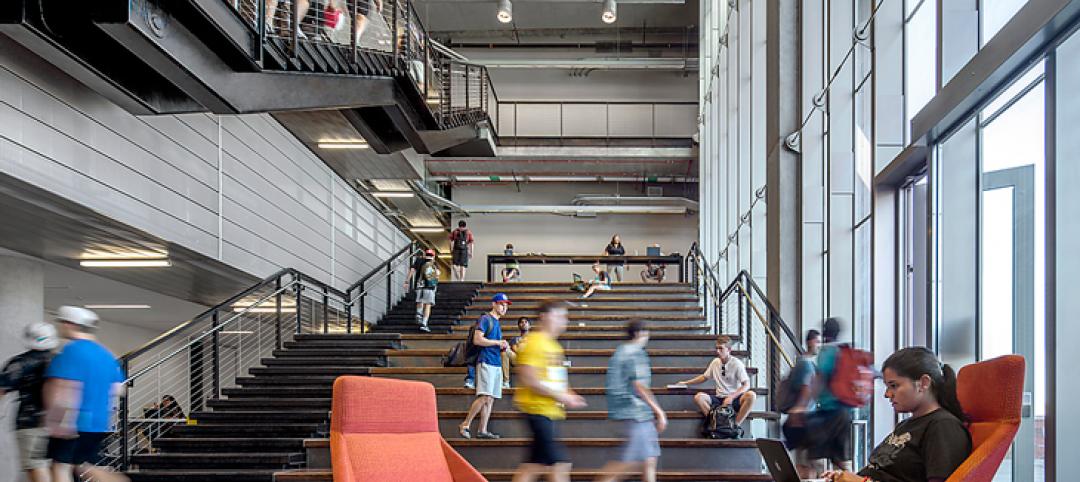Effective September 1, the University of Texas at San Antonio will launch its College of Engineering and Integrated Design (CEID), one of the few academic programs in the U.S. that combine engineering, architecture, and construction.
The new college will have 4,300 students, 117 faculty members, and 41 staff. It is the result of a year-long discussion by the University’s Integrated Design Initiative Task Force, that was formed in April 2020. Also instrumental in encouraging this consolidation is the San Antonio office of LPA Architects, whose Principal Mark Oppelt sits on the University’s Professional Advisory Council, and whose firm has long advocated the cross-pollination of engineering and architecture, especially now when the industry’s response to climate change requires more complicated solutions that involve both disciplines.
“This is the path the industry will need to travel for a more sustainable world,” Oppelt tells BD+C. He explains that as LPA has honed its specialty in sustainable design, it has come to appreciate the importance of incorporating engineering into the design process that often calls for complex MEP and HVAC systems to achieve sustainable results.
LPA Architects, with six offices in the U.S., is the largest architecture firm to meet or exceed AIA’s 2030 Challenge targets over the last two years. “We want our designers to understand engineering, and our engineers to understand design,” says Oppelt.
“LPA is a national leader in integrated design, and having Mark on the Advisory Council has been very impactful in informing the best way to shape this new program,” states Sedef Donager, Ph.D, Interim Director of the School of Architecture and Planning.
ONE COLLEGE, TWO SCHOOLS, THREE DEPARTMENTS
The new college brings together the academic departments and programs formerly under the College of Engineering and the College of Architecture, Planning, and Construction. CEID is organized administratively into two schools: one for Civil and Environmental Engineering and Construction Management; and another for Architecture and Planning. The new college has three departments: biomedical and chemical engineering, mechanical engineering, and electrical and computer engineering.
While students and faculty had collaborated on projects when the two colleges were separate entities, this combination will present more students with greater opportunities to work together, and—perhaps more important—prepare for working in an industry where firms are expanding their disciplines to remain competitive. (Oppelt says that at least half of LPA’s workforce in San Antonio graduated from UTSA.)
At present, the new college will use existing buildings on its campuses, but Oppelt suggests that UTSA’s plans to beef up its physical presence in downtown San Antonio could impact the new college down the road. Also in the future, all students in this program will be required to complete either an internship, a research project, a study abroad experience, or a service-learning initiative while pursuing their undergraduate or graduate degrees.
Related Stories
University Buildings | Feb 20, 2015
Penn strengthens campus security by reviving its surrounding neighborhood
In 1996, the University of Pennsylvania’s sprawling campus in Philadelphia was in the grip of an unprecedented crime wave. But instead of walling themselves off from their surrounding neighborhoods, the school decided to support the community.
University Buildings | Feb 18, 2015
Preparing for the worst: Campus security since Virginia Tech
Seven years after the mass shootings at Virginia Tech, colleges and universities continue to shake up their emergency communications and response capabilities to shootings and other criminal threats.
University Buildings | Feb 17, 2015
BD+C exclusive: How security is influencing campus design and construction
Campus crime—whether real or perceived—presents Building Teams with more opportunities for early-stage consultation with university clients.
Architects | Feb 11, 2015
Shortlist for 2015 Mies van der Rohe Award announced
Copenhagen, Berlin, and Rotterdam are the cities where most of the shortlisted works have been built.
Higher Education | Feb 3, 2015
Integrated Learning Neighborhoods: A solution for linking student housing with the typical student experience
Just as urban housing fits into the city as a whole, student housing can be integrated into the campus network as a series of living/learning neighborhoods, write Gensler's Brian Watson and Mark McMinn.
Sponsored | | Jan 26, 2015
Arriscraft delivers wow factor for the University of Wyoming’s remarkable Marian H. Rochelle Gateway Center
The state-of-the art Marian H. Rochelle Gateway Center successfully fuses the university’s time-honored brand qualities with a leading-edge technological infrastructure.
Sponsored | Green | Jan 26, 2015
Shopping centers set their sight on solar
As part of its pledge to environmentally sound practices, real estate investment trust Macerich is implementing solar across its portfolio of 85-plus properties in 19 states.
| Jan 7, 2015
University of Chicago releases proposed sites for Obama library bid
There are two proposed sites for the plan, both owned by the Chicago Park District in Chicago’s South Side, near the university’s campus in Hyde Park, according to the Chicago Sun-Times.
| Jan 6, 2015
Snøhetta unveils design proposal of the Barack Obama Presidential Center Library for the University of Hawaii
The plan by Snøhetta and WCIT Architecture features a building that appears square from the outside, but opens at one corner into a rounded courtyard with a pool, Dezeen reports.
| Jan 2, 2015
Construction put in place enjoyed healthy gains in 2014
Construction consultant FMI foresees—with some caveats—continuing growth in the office, lodging, and manufacturing sectors. But funding uncertainties raise red flags in education and healthcare.
















